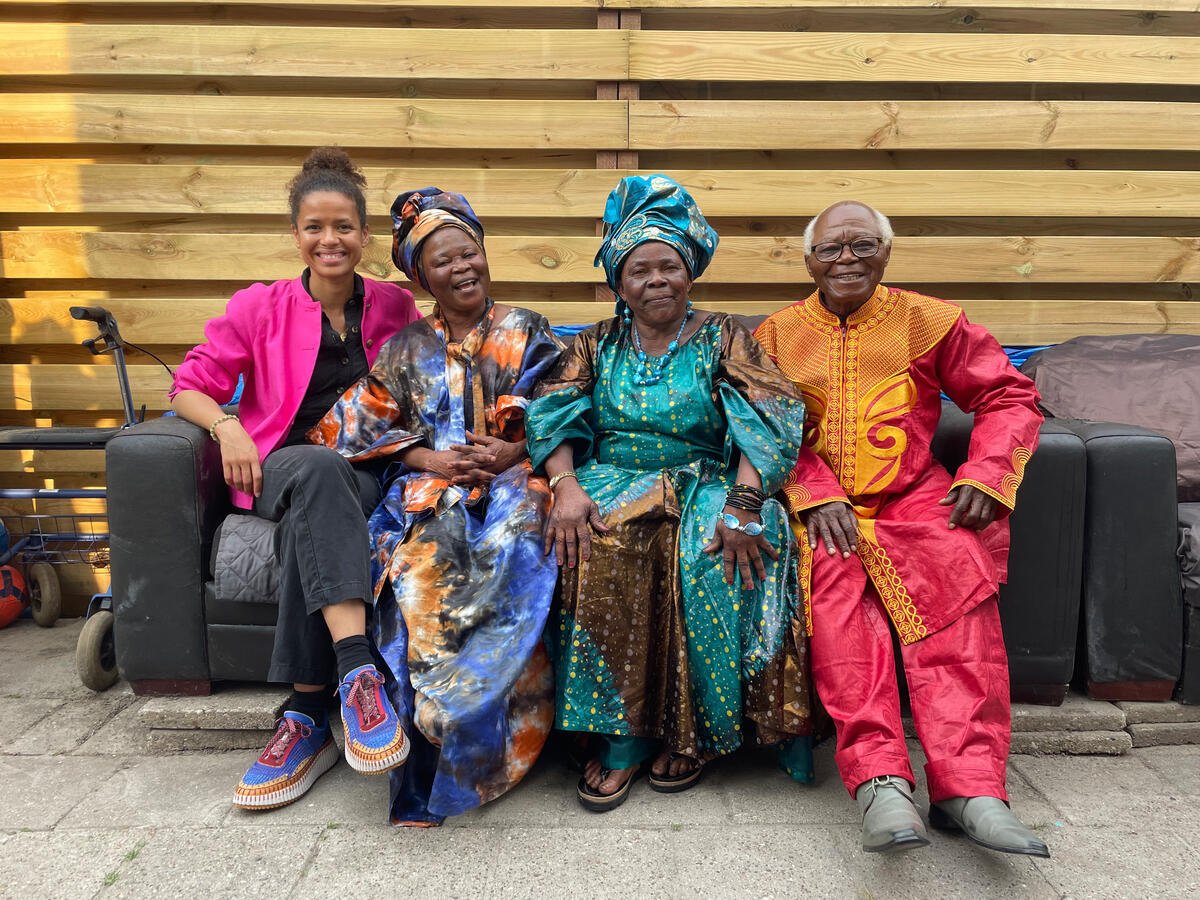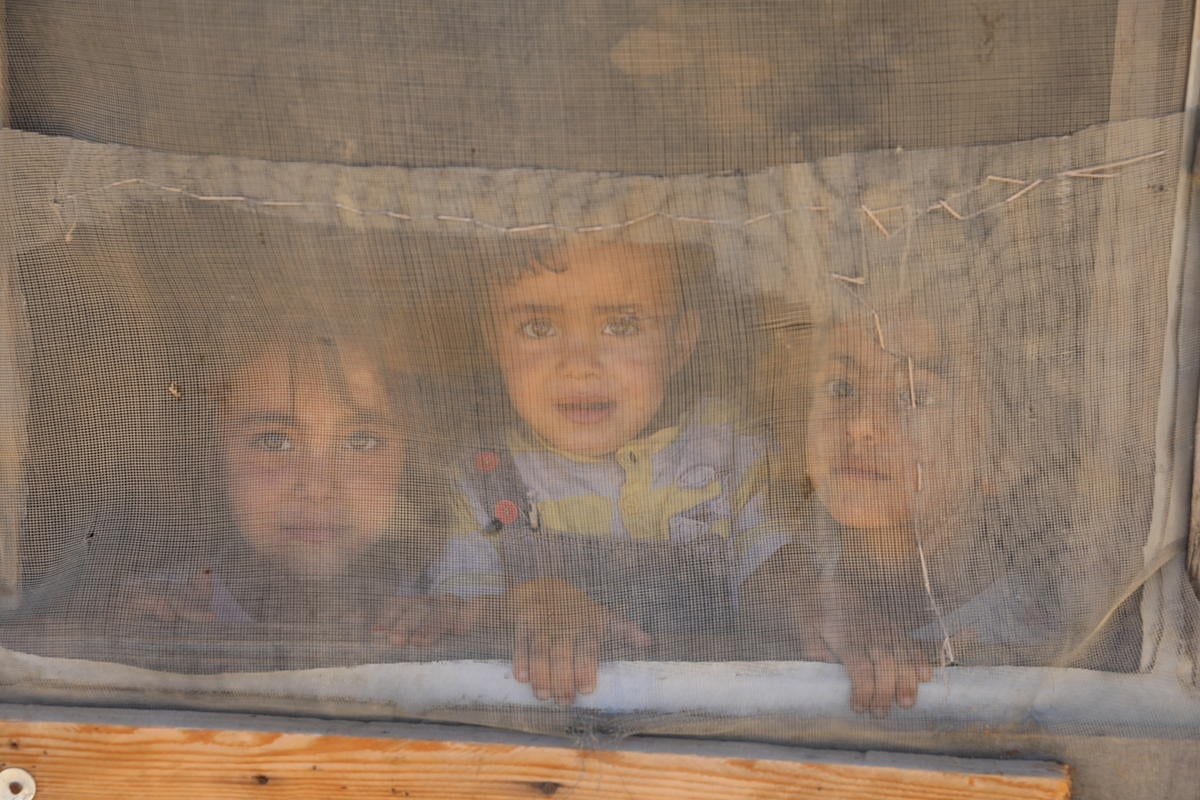US wraps up group resettlement for Myanmar refugees in Thailand
US wraps up group resettlement for Myanmar refugees in Thailand

MAE SARIANG, Thailand, January 29 (UNHCR) - One of the world's largest resettlement programmes recently came to an end in Thailand when UNHCR received the final expressions of interest from eligible Myanmar refugees who wish to start a new life in the United States.
The group resettlement programme was initiated in 2005, with the support of the Thai and US governments, to offer a durable solution to the tens of thousands of refugees from Myanmar who found themselves in a protracted refugee situation and dependent on international assistance in the nine camps along the Thai-Myanmar border.
Anne C. Richard, assistant secretary at the US State Department's Bureau of Population, Refugees, and Migration, said that her country had welcomed and settled more than 73,000 refugees from Myanmar since 2005. "The United States is proud to have given a new start to these refugees. Resettled Burmese refugees have thrived in their new homes, and enriched their new communities. Many have become homeowners, small business owners and American citizens," she said.
"We expect several more thousand to arrive in the coming year as the programme winds down," she added. "This successful resettlement programme has reached its natural conclusion following the January 24, 2014 deadline for Burmese refugees to express their interest in resettlement to UNHCR."
The programme's pending closure was first announced and implemented in January last year in Mae La camp. It was subsequently rolled out to the other camps in different stages. Eligible refugees in each camp were given three months to decide whether or not to apply for resettlement to the US under the simplified procedures.
The process ended last Friday as the deadline for applications passed in the last three camps in Mae Hong Son province, namely Mae La Oon, Mae Ra Ma Ruang and Ban Mae Surin.
Over the past year, nearly 6,500 Myanmar refugees on the Thai-Myanmar border have expressed interest in the US group resettlement programme - 2,500 more individuals than in 2012, an indication that many refugees had been waiting for the last chance before making a final decision to resettle or not.
Tun Myin, a 30-year-old father of three in Mae La Oon camp, was among the last refugees to express his interest last week. "We were waiting to see what people would do," he said. "Now all of my siblings are resettling, we don't want to stay behind by ourselves in the camp."
Keeping the family together was an important consideration for many. "Our parents have recently applied for the US and the children don't want to separate from their grandparents," said Aung Mya Khe, 39, also from Mae la Oon camp. Such decisions are never simple, and he is worried that his children may forget their Karen culture in the long run.
Access to higher education was another key factor in the decision to resettle. "Life for our children will be much improved in the US. In the camp they cannot progress beyond Grade 10 in school, and they cannot go to university in Thailand," said Thein Than Aye, a teacher and pastor in Mae Ra Ma Luang camp.
Tun Myin agreed, "There will be educational opportunities for my children and my wife in the US. I will do whatever job I am able to do."
UNHCR is working closely with the International Rescue Committee's Resettlement Support Centre and the International Organization for Migration to conduct resettlement processing until all applications have been reviewed and the approved cases are helped to depart Thailand.
In addition to the US departures, some 19,000 Myanmar refugees in Thailand have gone to other resettlement countries, including Australia, Canada, Finland and Japan, in the last nine years. "The end of this chapter does not mean that resettlement is closed completely," said Mireille Girard, UNHCR's representative in Thailand. "UNHCR will continue to identify and submit refugees with specific protection needs on an individual basis to various countries. We are also working with the Thai government and resettlement countries to reunite families and make sure family members can be resettled together."
There are an estimated 120,000 Myanmar refugees remaining in the nine camps in Thailand, including more than 40,000 not registered by the Thai authorities.
The UN refugee agency has been working for years to secure a range of options and solutions for the refugees. It is conducting surveys in the camps to get a clearer profile of the registered and unregistered refugees, and to better understand their post-camp plans.
In the past two years, positive developments in south-eastern Myanmar have raised expectations that the refugees may be able to return home in the not too distant future. While UNHCR believes that conditions are not yet conducive for organized returns to take place at this moment, the agency is working with partners to prepare for this eventuality for those refugees who will decide to repatriate to Myanmar.
By Vivian Tan in Bangkok and Max McClellan in Mae Sariang, Thailand









